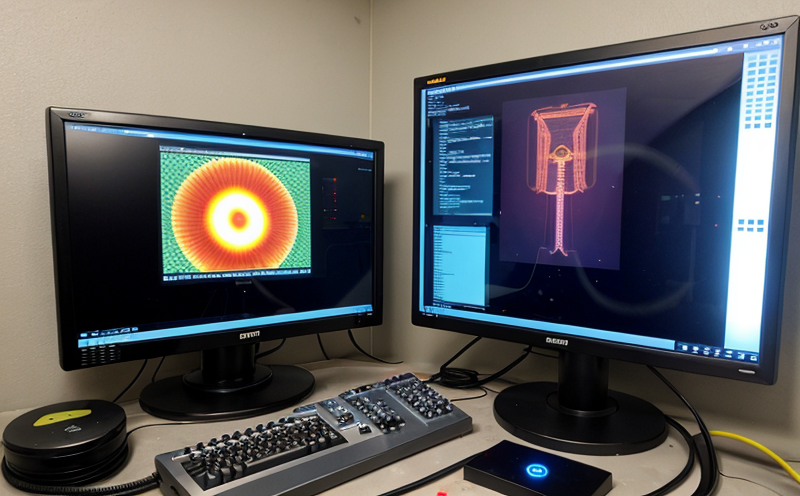FCC Part 18 EMC Testing for Industrial Scientific and Medical Equipment
The Federal Communications Commission (FCC) Part 18 is a critical regulation governing electromagnetic compatibility (EMC) standards, specifically targeting industrial, scientific, and medical equipment. Compliance with FCC Part 18 ensures that devices do not interfere with radio communications or other electronic systems within the United States.
EMC testing under FCC Part 18 aims to verify that equipment complies with specified limits on conducted emissions, radiated emissions, and immunity criteria. This is essential for manufacturers who want to market their products in the U.S. without violating regulatory requirements. The testing process involves a series of controlled experiments designed to replicate real-world electromagnetic environments.
The FCC Part 18 standards are based on international guidelines such as IEC 61000-4 and ISO/IEC TR 15923, which provide a framework for assessing the EMC performance of various devices. Compliance with these standards is not only mandatory for market entry but also contributes to product reliability, safety, and interoperability.
Testing typically involves measuring emissions from devices at specific frequencies and ensuring they do not exceed allowable limits. Immunity testing assesses how well equipment can function in the presence of electromagnetic interference (EMI). This ensures that industrial scientific and medical equipment remains operational even when exposed to harsh electromagnetic environments.
Given the critical nature of these devices, it is essential for manufacturers to conduct thorough EMC testing at an accredited laboratory. Our facility offers comprehensive FCC Part 18 testing services tailored specifically for this sector, ensuring compliance with all relevant standards and regulations.
The process begins with a detailed review of the device’s intended use and functionality to identify potential sources of interference or susceptibility to electromagnetic fields. Based on this analysis, our team prepares a test plan that outlines the specific parameters to be measured during the testing phase.
| Test Parameter | Description | Measurement Method |
|---|---|---|
| Conducted Emissions | Emissions measured through the power lines of the device. | Using a Spectrum Analyzer and Faraday Cage setup. |
| Radiated Emissions | Emissions measured in free space around the device. | Using an Anechoic Chamber with appropriate antennas. |
| Immunity Testing | Determines how well equipment withstands electromagnetic interference. | Subjecting devices to controlled EMI environments using a test bed setup. |
Once the tests are completed, our team generates detailed reports that document all findings and results. These reports serve as evidence of compliance with FCC Part 18 standards and can be submitted to regulatory bodies or used internally for quality assurance purposes.
Compliance with FCC Part 18 is crucial not only for regulatory reasons but also for ensuring the safety and reliability of industrial, scientific, and medical equipment. By adhering to these stringent standards, manufacturers can ensure their products meet the highest levels of performance and are safe for use in diverse environments.
Why It Matters
FCC Part 18 EMC testing is vital for several reasons. First and foremost, it ensures that equipment operates reliably without causing interference to other devices or systems within its environment. This is particularly important in industries where equipment failure can have severe consequences, such as healthcare settings.
Secondly, compliance with FCC Part 18 helps manufacturers avoid costly delays and penalties associated with non-compliance. By ensuring that their products meet all relevant standards before going to market, companies can streamline the regulatory approval process and minimize potential risks.
Additionally, EMC testing under FCC Part 18 promotes a safer and more interoperable environment for users of industrial, scientific, and medical equipment. This is crucial in sectors where equipment reliability and performance are critical, such as in hospitals or research facilities.
The testing process also aids in the continuous improvement of product design and functionality. By identifying potential areas of non-compliance early on, manufacturers can make necessary adjustments to their products, leading to enhanced quality and marketability.
In summary, FCC Part 18 EMC testing is not just a regulatory requirement but an essential practice that contributes to the overall safety, reliability, and performance of industrial scientific and medical equipment.
Scope and Methodology
- Initial Consultation: We begin by discussing your specific needs and requirements with you. This helps us tailor the testing process to meet your exact specifications.
- Test Preparation: Based on our discussions, we prepare a detailed test plan that outlines all relevant parameters and procedures for conducting the EMC tests.
- Conducted Emissions Testing: Using advanced equipment in controlled environments, we measure the emissions through power lines to ensure they do not exceed allowable limits.
- Radiated Emissions Testing: In this phase, we measure emissions from the device itself using specialized chambers and antennas.
- Immunity Testing: This involves subjecting devices to controlled electromagnetic interference environments to assess their resistance to potential disruptions.
- Data Analysis and Reporting: Once all tests are complete, our team analyzes the data collected and compiles detailed reports that document all findings and results.
International Acceptance and Recognition
- FCC Part 18 EMC testing is widely recognized across North America, ensuring compliance with U.S. regulations.
- The results of these tests are accepted by other regulatory bodies worldwide, facilitating smoother market entry in countries that recognize FCC standards.
- Many international organizations and certification bodies reference FCC Part 18 as a benchmark for EMC testing, enhancing the credibility of your products globally.
- Compliance with FCC Part 18 is often seen as an indicator of high-quality manufacturing practices, which can improve brand reputation and customer trust.





